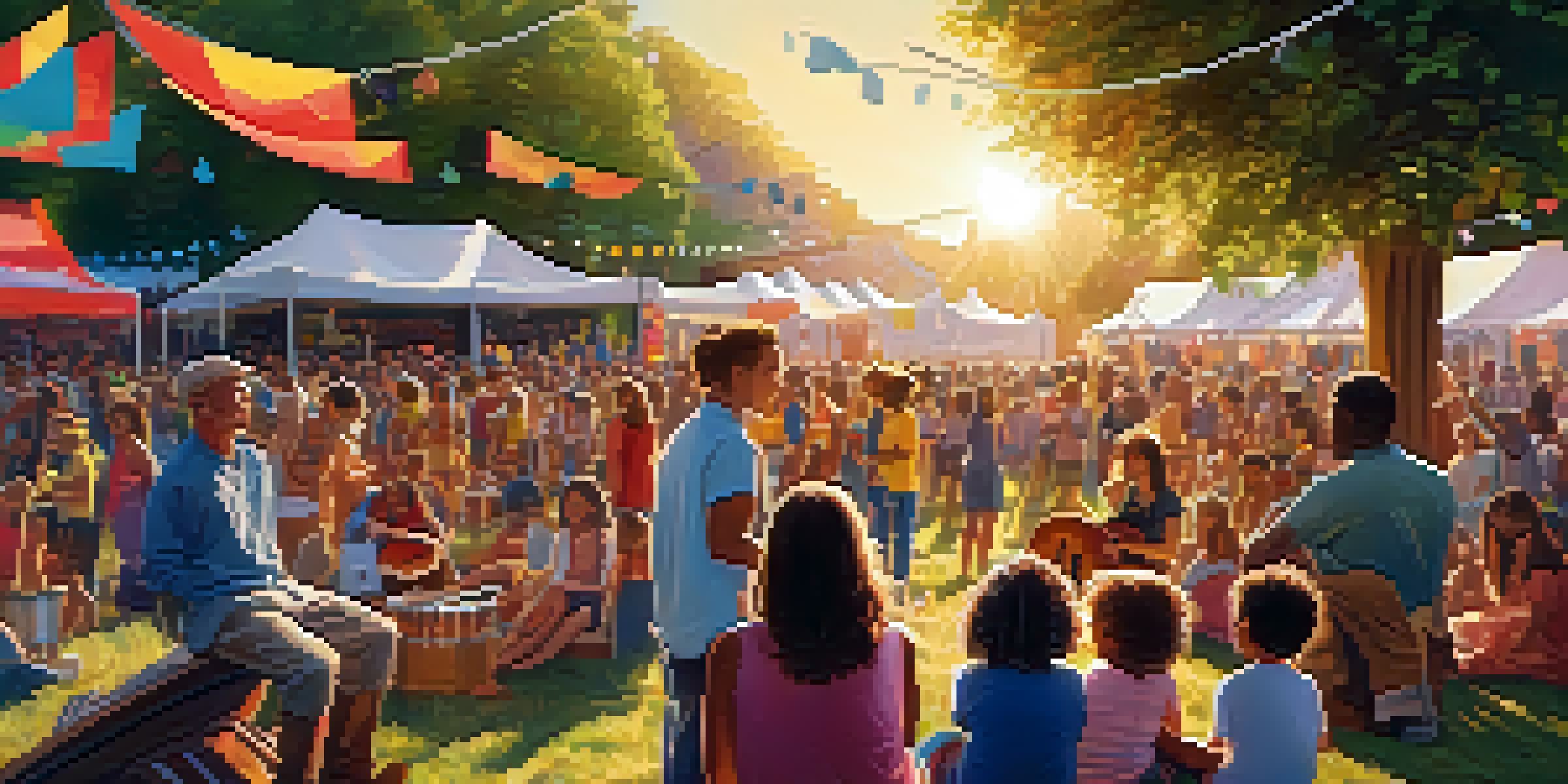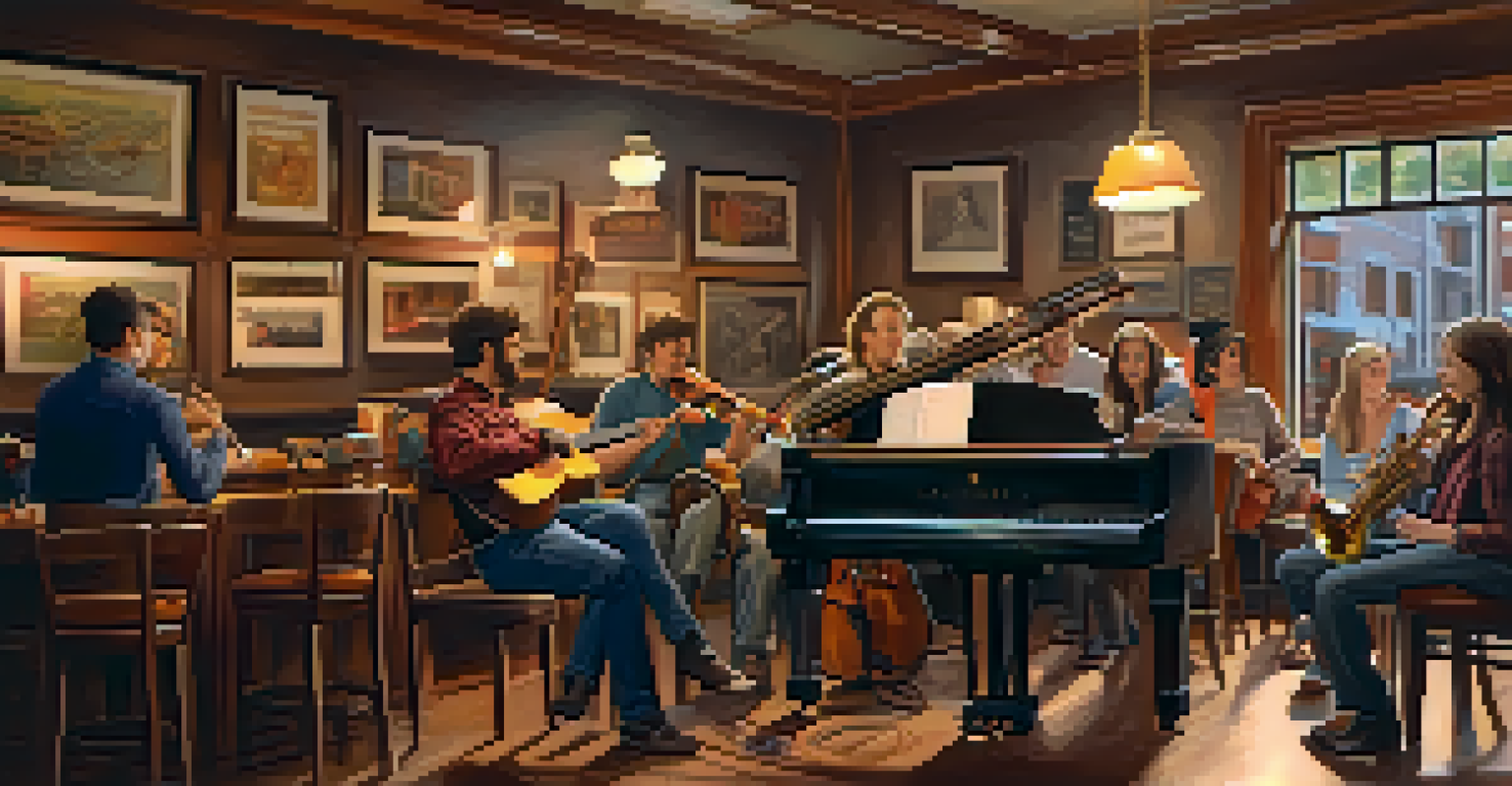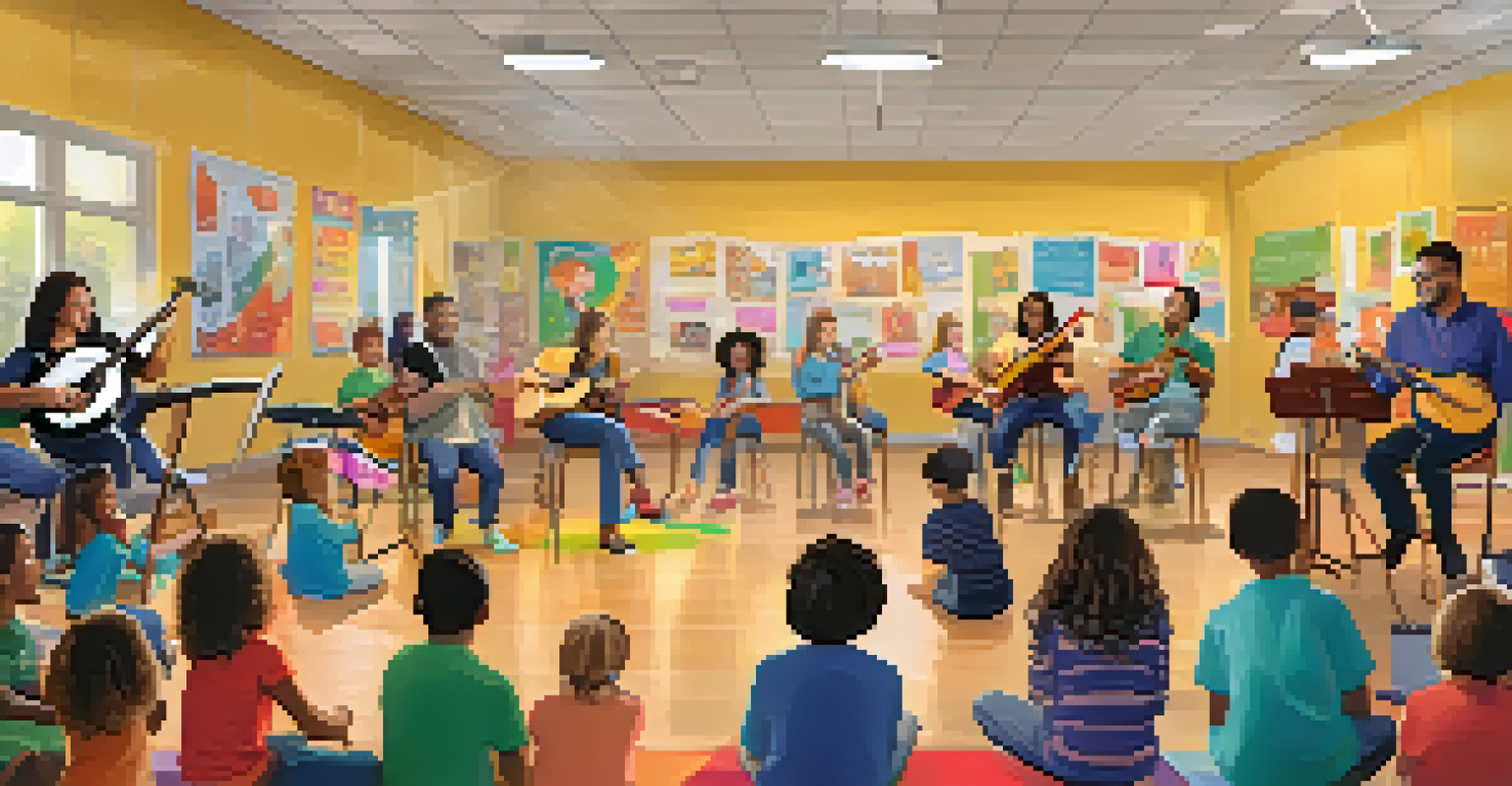Community Advocacy for Music Programs: Success Stories

The Importance of Music Programs in Communities
Music programs play a vital role in fostering creativity and self-expression among individuals of all ages. They provide a platform for students to explore their musical talents, which can lead to increased confidence and a sense of belonging. Beyond personal development, these programs often enhance community cohesion, bringing people together through shared experiences.
Music can change the world because it can change people.
Many studies highlight the positive impact of music education on academic performance, particularly in areas like math and reading. When students engage in music, they develop critical thinking skills and discipline that translate into other subjects. This connection between music and education is a compelling reason for communities to invest in and support music programs.
Ultimately, music programs are more than just extracurricular activities; they’re essential for nurturing the next generation of artists and leaders. Communities that prioritize these programs set a foundation for cultural richness and innovation, ensuring that the arts remain accessible to all.
Successful Community-Based Music Initiatives
Across the nation, numerous communities have launched successful initiatives to advocate for music programs. One standout example is the 'Music Matters' campaign in a small town, where local musicians banded together to raise awareness about the importance of music education in schools. Their efforts included fundraising events, workshops, and performances that attracted community members of all ages.

In another instance, a city partnered with local businesses to sponsor after-school music programs. This collaboration not only provided financial support but also engaged the business community in fostering a love for music among youth. By creating a shared responsibility, these initiatives successfully enhanced the visibility and sustainability of music programs.
Music Programs Foster Community Growth
Music programs enhance creativity and strengthen community ties by providing platforms for self-expression and collaboration.
These examples demonstrate that when communities come together with a shared vision, they can significantly impact the availability and quality of music education. It’s not just about funding; it’s about creating a culture that values and cherishes the arts.
Grassroots Movements: The Power of Local Advocacy
Grassroots movements have proven to be a powerful force in advocating for music programs. By organizing local events and engaging community members, advocates can raise awareness and rally support for their cause. One notable example is the 'Save Our Music Program' initiative in a suburban area, where parents and students united to overturn budget cuts to their school’s music department.
The arts are not a luxury; they are a necessity.
Through petition drives, public meetings, and social media campaigns, the movement garnered significant attention and ultimately led to the reinstatement of funding for music education. This success story exemplifies how passionate individuals can challenge the status quo and make a difference in their local schools.
The lessons learned from these grassroots efforts underscore the importance of community involvement and collaboration. When everyone chips in, from parents to local businesses, the impact multiplies, proving that collective action can lead to lasting change.
The Role of Local Businesses in Supporting Music Programs
Local businesses can play a pivotal role in supporting music programs, both financially and through active participation. For instance, many businesses sponsor music festivals or donate instruments to schools, making a tangible impact on music education. This not only helps the programs but also fosters a positive relationship between businesses and the community.
One inspiring story comes from a coffee shop that initiated a 'Music for All' program, where a portion of its sales went directly to funding local music initiatives. This not only increased their customer base but also built goodwill within the community as patrons felt they were contributing to a worthy cause with their purchases.
Local Advocacy Drives Music Funding
Grassroots movements and parent involvement are crucial in advocating for the preservation and funding of school music programs.
By partnering with music programs, local businesses can enhance their brand reputation while supporting the arts. This symbiotic relationship benefits everyone involved and underscores how integral music education is to a thriving community.
Engaging Parents and Families in Music Advocacy
Engaging parents and families is crucial for the success of any music advocacy initiative. When families are involved, they bring their voices and experiences to the table, amplifying the call for robust music programs. Schools that host family music nights or workshops can create an inclusive environment where parents feel empowered to advocate for their children’s education.
For example, a school district that implemented a 'Family Music Night' saw a significant increase in parent participation in school events. This initiative not only strengthened the bond between families and the school but also encouraged parents to advocate for continued funding for music programs.
Such engagement fosters a sense of community ownership over the music programs, creating advocates who are passionate about preserving and enhancing these vital educational opportunities. When families unite for a common cause, their collective voice becomes a powerful tool for change.
Success Stories from Diverse Communities
Music advocacy transcends geographic and cultural boundaries, with success stories emerging from diverse communities across the country. For instance, a rural community in the Midwest created a traveling music program to ensure that all students, regardless of location, had access to music education. This program not only brought music to underserved areas but also fostered a sense of pride in local heritage.
In urban settings, communities have embraced multicultural music programs that celebrate diversity and inclusion. One city launched a program that features music from various cultures, teaching students about the significance of different musical traditions. This initiative not only enriched the students’ education but also promoted understanding and appreciation among diverse groups.
Businesses Enhance Music Education
Local businesses play a key role in supporting music initiatives, fostering community relationships while promoting the arts.
These stories highlight the adaptability of music programs to meet the needs of different communities. By recognizing and celebrating diversity, music advocacy efforts can create inclusive environments where everyone feels valued and engaged.
The Future of Music Programs in Communities
As we look to the future, the importance of community advocacy for music programs cannot be overstated. With technology advancing and educational needs evolving, communities must continue to adapt and innovate in how they offer music education. This could mean integrating digital tools or creating hybrid programs that blend traditional and modern musical experiences.
Moreover, ongoing advocacy is essential to ensure that music programs remain a priority in local budgets. By nurturing partnerships between schools, local governments, and community organizations, advocates can create a robust support system for music education that withstands economic fluctuations.

The future is bright for music programs when communities come together with a shared vision. With sustained advocacy, creativity, and collaboration, the next generation will benefit from rich musical experiences that inspire and empower them.